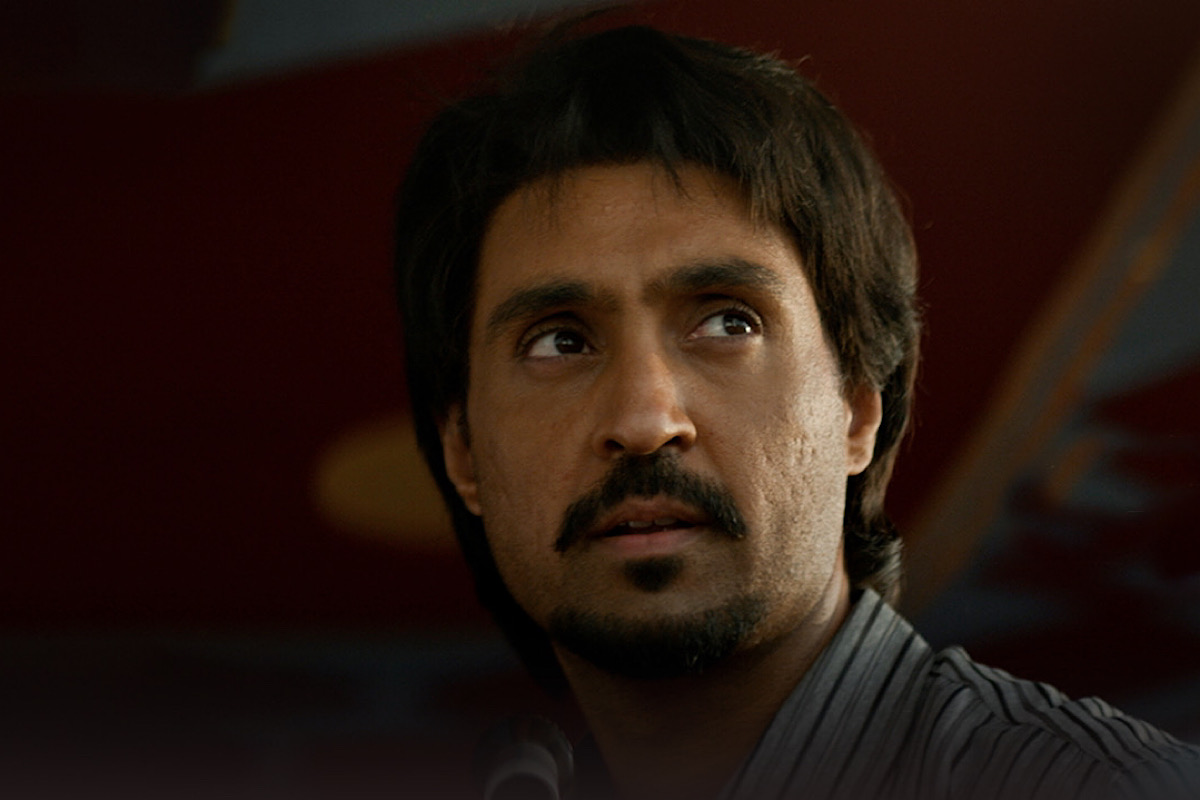‘My Melbourne’ by Kabir Khan, Imtiaz Ali, Rima Das, Onir to release on March 14
'My Melbourne' is an anthology featuring four impactful stories that explore themes of race, gender, sexuality, and disability. It offers a unique cinematic experience.
We have seen films in which stories are narrated through songs. The classical examples of this are Hamilton, Cats and Tommy, among others. There are others, like My Fair Lady, that are not completely devoid of dialogue.

Diljit Dosanjh as Chamkila (photo, SNS)
We have seen films in which stories are narrated through songs. The classical examples of this are Hamilton, Cats and Tommy, among others. There are others, like My Fair Lady, that are not completely devoid of dialogue. Here, lyrics are interspersed with it. Amar Singh Chamkila, now running on Netflix, falls in the latter category, with some haunting numbers penned by Irshad Kamil and set to tune by A R Rahman.
The movie, helmed by Imtiaz Ali, who has given us Rockstar, Jab We Met, etc., is a compelling biopic of a singing legend, Chamkila, whose Punjabi folk music endeared him to the masses in no small way. He shot into such fame that he was often called the “Elvis of Punjab”.
Advertisement
His popularity also came from the lyrics he wrote, and they were invariably about forbidden love (between a woman and her husband’s brother), sexuality (often talking about the male gaze), drug abuse (in the state, where it is a pressing problem), and matters that ought to remain within the four walls of a bedroom. Despite his risqué songs, Chamkila became a rage, with hundreds of women joining the crowds at the akharas, where he performed with gusto. These became spaces for great revelry, with the vocalist teasing and taunting his listeners.
Advertisement
Rahman and Kamil have dexterously woven their songs into the narrative, managing to capture the mood and ambiance of the 1980s Punjab when Chamkila ruled. Some of the songs have been rendered by Parineeti Chopra, who plays Chamkila’s wife, Amarjot Kaur. The numbers bring back memories of a bygone era when Mohammed Rafi and Lata Mangeshkar held sway over the music world, tempering it with mellifluous melody.
In the centre of all this is Diljit Dosanjh, who, as Chamkila, is captivating. Calm, subtle, a tad nervous and extremely sincere, he literally carries the movie. Born on 1 July 1960, in a small Punjab village, he grew up as Dhani Ram in a poor Dalit family. Even as a little boy of six, he showed traces of his hidden talent. He would sing now and then, and although he wanted to be an electrician, he landed a job in a cloth mill when he was 18. He would write songs during his breaks.
First married to Gurmail Kaur (with whom he had four children but only two survived, and Kamaldeep is also a Punjabi folk musician), he later married Amarjot. The two became a singing sensation after Chamkila decided to quit working for Surinder Shinda. His lyrics came from Chamkila’s pen.
Like many celebrities, Chamkila ruffled feathers. Amarjot was an upper caste, and their inter-caste marriage angered many. And his phenomenal success caused intense jealousy among other vocalists. But there was no stopping Chamkila or Amarjot, who also became an entrancing singer. Their jugalbandi became iconic, and their musical engagements on open-air stages were such a hit that people climbed on trees to watch them.
Chamkila-Amarjot’s debut LP record, Bhul Gayi Main Ghund Kadna, featured an unforgettable track, Pahile Lalkare Naal Main Darr Gayi. Hundreds of them were sold. His distinctive style and poignant lyrics resonated deeply with the rural Punjabi masses, and his musical genius spread.
Amarjot, who left her first husband to pursue her aspirations, had worked with the popular singer, Kuldeep Manak, before partnering with Chamkila. The two hit it off from the very first note. Their jugalbandi became sensational and would appear as if they were engaged in a musical tête-à-tête. Crowds would pour into the akharas (free, open-air concert spaces) and climb terraces and trees to hear them. As the quip goes, he would do 366 shows in 365 days. Marriage dates would be changed if he was busy, and no ceremony was complete without his songs. And he charged Rs 4,000 for a performance, when other singers could get only Rs 500. Local singers lost their livelihood, and this angered them. Sikh religious leaders were aghast at his bawdy lyrics.
It was the height of the Punjab insurgency, and the militants too had a bone to pick with Chamkila, who they felt was soiling society. They tried warning him several times, and although Chamkila tried to substitute his vulgar verses with divine ones, the spectators would not let him sing them. He had to bow to popular pressure.
Eventually, he and his wife were murdered as they got out of their car for a concert. He was only 28. And it was 1988. Nobody knew who was responsible for this ghastly act. Nobody knows even today, but the movie rolls in a flashback style with the two dead bodies lying in a room guarded by policemen. This heightens the tragedy.
Whatever Chamkila’s detractors may have felt about his music, the fact remains that he became mainstream as mainstream could possibly be, and he shaped the Punjabi pop music culture with colour and gaiety. Even today, decades after he is gone, singers pay tribute to his lyrics by incorporating some into their own renderings. Such was his fame, and the film does ample justice to him and his brilliance.
The writer is a senior film critic
Advertisement